The Most-Difficult to Reach Festival in the World
Gary Meenaghan traveled to Pyongyang to see the Arirang Mass Games, and learns a lot more about North Korea than he ever imagined.
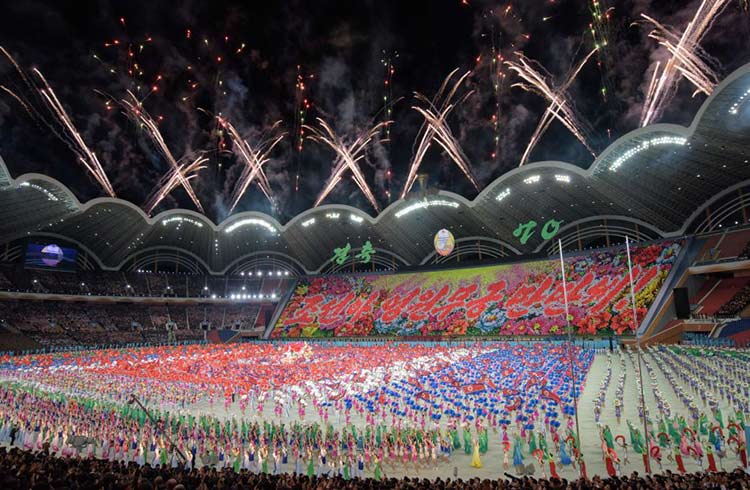 Photo © Getty Images: ED JONES
Photo © Getty Images: ED JONES
Editor's note: We’re all about adventurous, independent, off-the-beaten track travel, but unfortunately World Nomads travel insurance policies cannot cover travel to or in North Korea. For more information, read our travel safety tips if you do choose to travel to North Korea.
- Statues, Souvenirs but No Sport
- Socialist Realism Extravaganza
- History and a Heartbeat
- An Ethical Decision
- Trip Notes
I’m in Pyongyang, sitting inside the largest sports stadium in the world and surrounded by a sea of North Koreans, many of whom are wearing military attire. My ears are ringing to the sound of local folk music, which permeates every inch of this concrete colosseum. On the grass field below, hundreds of colorfully dressed five-year-olds skip rope and dance in perfect synchrony — all the while, quite naturally, sitting atop unicycles.
This is one of the most surreal sights imaginable, and the primary reason I, a sports writer by trade, have undertaken this expensive and arduous journey to the planet’s most secretive country.
If unicycle-riding children were not fantastical enough an introduction to the infamous hermit kingdom’s near-mythical Mass Games, on the opposite side of the 114,000-seat May Day Stadium, a bank of 20,000 students are turning the stand into what appears to be a gigantic moving billboard. By flipping in unison through books of up to 170 different colored cards, the students — who train for more than six months — are able to essentially each become a pixel in one giant, ever-changing mosaic of images, ranging from rising suns to military guns.
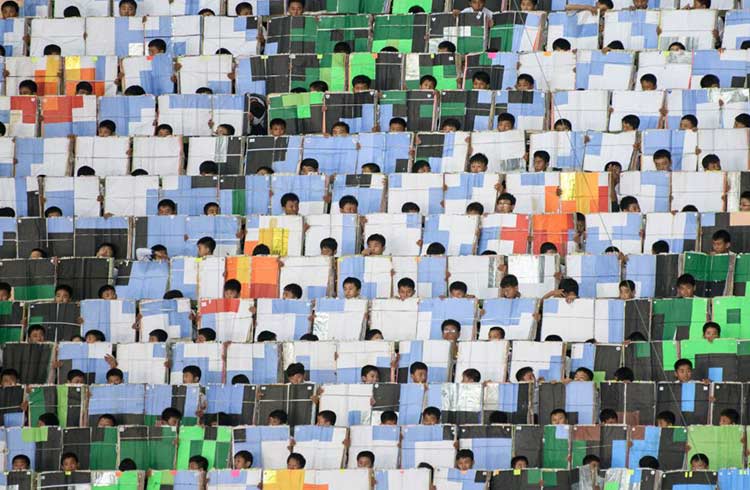
Statues, Souvenirs but No Sport
Don’t be fooled by the name, there is no competitive sporting angle to the Mass Games. I left my sports writer’s hat aboard the Air Koryo flight from Beijing, and am here merely as a curious traveler. Like all foreign visitors, I arrived as part of a tour and am accompanied by a local guide at all times.
Mr Lee is a hard-to-read thirty-something dressed in smart but uncomplicated clothing. He speaks perfect English and jokes with a straight face, leaving me never quite sure whether I should smirk knowingly or shirk his eye contact. We see what we are allowed to see and nothing more, so before attending the Games, we spend a day visiting bronze statues of Brobdingnagian proportions, public parks complete with inconspicuous men reading newspapers, two stops on the 16-stop Pyongyang Metro, and a book shop where I purchase a small pamphlet entitled “United States: The Imperial Terrorists”.
I have an unshakeable feeling that I am in The Truman Show, however it is another show that I am most anticipating.
Socialist Realism Extravaganza
With the Mass Games scheduled to start at 7pm, our minibus picks us up at our gilded prison of a hotel and takes us across the Taedong River to Rungra Island, where the monolithic stadium appears on the horizon like a gargantuan stone spaceship. Disembarking among crowds of locals, it’s impossible not to note two things: fashion in the Democratic People’s Republic of Korea is limited to 50 shades of gray (not the book) and everyone — everyone! — wears a red buttonhole badge carrying the face of either the Great Leader Kim Il Sung or his son, the Dear Leader Kim Jong Il.
I ask Mr Lee what would happen were he to wake up late one morning and, in the rush to leave his house, forget to adorn his lapel pin. “It’s impossible,” he replies. Devotion to the Kim family is evidently a source of great pride and patriotism. It is also obligatory. The Mass Games is the ultimate example of this: a socialist realism extravaganza soaked in symbolism, lavishing indiscriminate praise on the country’s leadership, and promoting subordination of the individual in favor of assisting the collective.
History and a Heartbeat
In 2007, the Guinness Book of World Records classified the Games as the largest gymnastics display on Earth; its 109,000 participants combining acrobatics, theatre, song, military marching, and cultural dance. Throughout the course of 90 minutes, from high up in the bleachers, I do not spot a single dance step, goose-step, or card-switch out of sync. It is an incredible, almost unfathomable feat.
Having attended Fifa World Cups and Olympics, I feel most comfortable comparing the show to a sporting mega-event’s opening ceremony — but only if that mega-event were being held on a different planet. Enormous strobes produce an explosion of color as waves of chanting dancers expand and contract like a throbbing heart. All the while, an army of flashcard-wielding performers turn the opposite stand into a wider-than-wide television screen. The crowd sit quiet, save for occasional rounds of applause. There are no cellphones being waved in the air, no shouting, and no vendors selling hot dogs.
The show, which first took place in the late 1940s, was initially held only on special occasions. In 2002 though it became an annual event running for a few weeks each year under the theme of Arirang, a 600-year-old folk song about two young lovers torn apart that have come to represent the two Koreas. It is often regarded as the unofficial anthem of a unified nation and the version pounding out the speakers here is dramatic: an orchestral drum-laden militaristic sort, complete with romantic melodies and powerful crescendos.
Despite the Arirang Mass Games being held 11 times in 12 years, it was cancelled, abruptly and without explanation, in 2013. In 2018, it reappeared, dropping the Arirang name in place of a new theme — Glorious Fatherland — and featuring a high-tech upgrade with drones spelling out words in the sky.
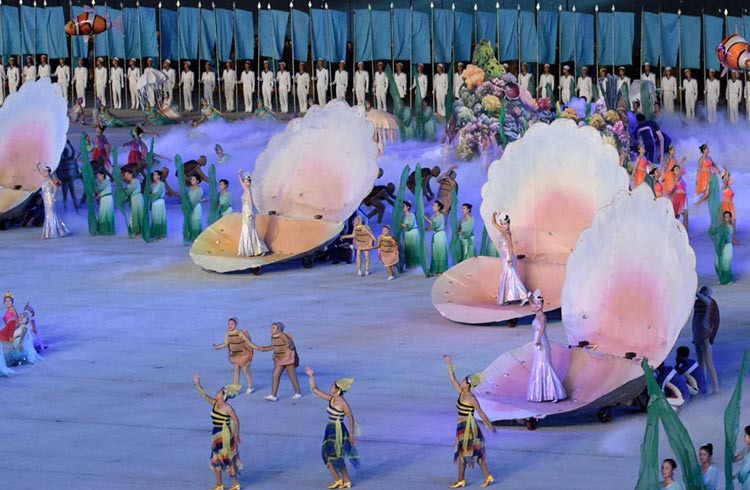
An Ethical Decision
Aside from the expense of the various tours — I paid close to US $900 for a three-day trip — tourists visiting DPRK must also check their moral compass to see where they stand. The country has a poor human rights record and is according to the United Nations one of the most repressive authoritarian states in the world. Critics say tourist dollars help the regime, but others argue the tourism industry is minimal and non-governmental tourism provides a positive means of engagement with an otherwise closed-off society.
My curiosity trumped any lingering doubts, and I am glad it did. With space travel unlikely to be affordable anytime soon, North Korea is the closest most people will come to visiting an unworldly destination. From the moment my passport was confiscated at the airport to the moment it was returned when I left, DPRK felt unlike any other country on the planet. And its Mass Games, complete with a fireworks display to close the show, is without doubt its grandest showpiece.
Trip Notes
Getting there
There is a small but growing number of companies offering guided tours into DPRK, including Young Pioneer Tours, Koryo Tours, and Uri Tours. Most involve flights from Beijing Capital International Airport aboard either Koryo Air or Air China, but there are also train options. The companies will arrange all travel, visas, hotels, meals, and tickets to the Mass Games.
Where to stay
There are a small handful of hotels that foreigners can stay in Pyongyang. All are comfortable, which is welcome as foreign guests are forbidden from leaving unless with a guide. Some offer leisure facilities including ten-pin bowling, billiards and ping-pong.
Food
Before arriving, I had read food would be sparse and unsavory, but – for visitors at least – such suggestions were fortunately wide of the mark. The food I tasted was both delicious and plentiful. From pancakes to kimchi to spicy beef, all washed down with soju or local beer.
When to go
It is unknown yet whether the Mass Games will remain a fixture on the North Korean calendar for 2019, although it is more likely than not following the success of last year’s iteration, which were, like previous editions, held in September.
A note on travel insurance
While we can’t offer travel insurance policies for North Korea, we encourage travelers to find a travel insurer before traveling. Some tour operators might organise this for you, but in case they don't, research carefully. You may not have access to medical care and other essential services while in North Korea.
Related articles
Simple and flexible travel insurance
You can buy at home or while traveling, and claim online from anywhere in the world. With 150+ adventure activities covered and 24/7 emergency assistance.
Get a quote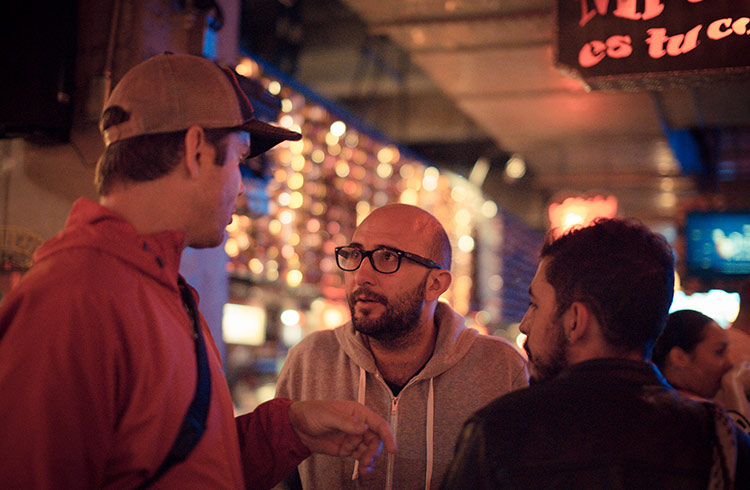

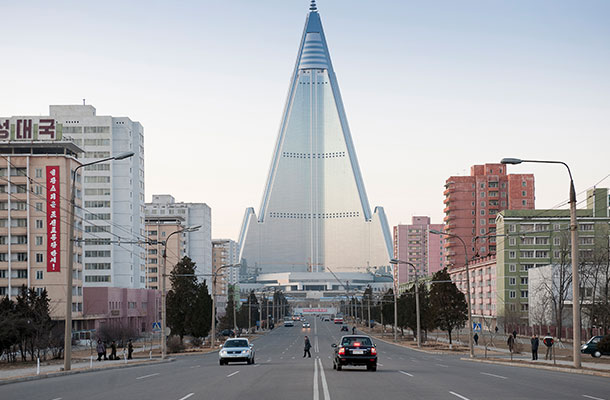
No Comments